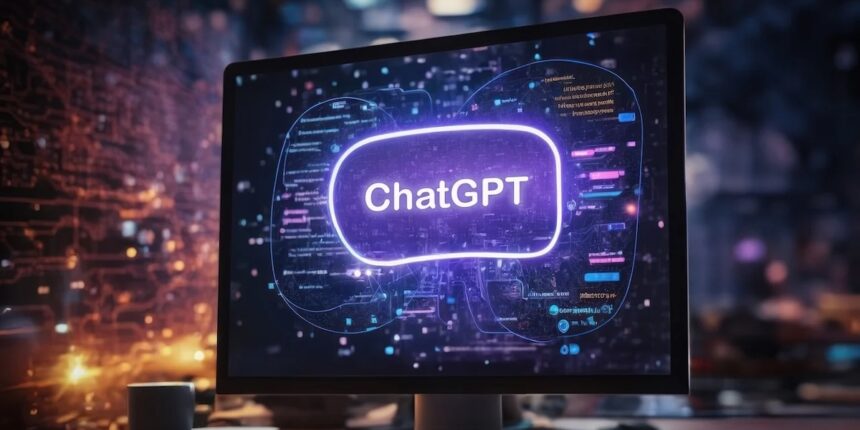All teachers and parents now know that conversational agents like ChatGPT pose a significant challenge to learning: it is now necessary to ensure that it is not these tools, with their extraordinary ability to produce texts tailored to the user’s requests, that fuel the essays, reports, and papers submitted by students.
How can we now ensure that learners are truly working on their own, with a view to appropriating knowledge? Teachers, acting as philosophers of technology and education psychologists, try to teach students to use these tools intelligently and with a certain ethics, by integrating them into their teaching, for example. But more structured methods can also be proposed to help them.
Before the arrival of the technologies offered by OpenAI, we had developed a pedagogical method to ensure that students make the effort to truly assimilate knowledge while learning to use digital tools: the « Ignorant Master » method, which was inspired by Joseph Jacotot’s method, rediscovered by the philosopher Jacques Rancière. This iconoclastic educator of the 19th century amazed Northern Europe by managing to teach French to students without speaking the language, and thus without being able to resort to explanations. This old, simple, and original method finds new relevance today with the advent of OpenAI.
Promoting an active attitude towards knowledge
This method, which I have experimented with for many years in management schools, posits that one truly learns only what one needs. For example, children learn their mother tongue without any formal lessons: they learn through trial and error, perseverance, and effort, and above all, out of necessity. This knowledge is what will truly be appropriated for life. Therefore, the main role of the teacher is to ensure that the learner is genuinely making an effort in their learning.
To achieve this, both the role of the student and that of the teacher are called into question. Regarding the student, we avoid putting them in a position where they are simply asked to repeat, as could be done in traditional teaching, or to « rediscover » the knowledge held by the teacher, as suggested by more active methods. Regarding the teacher, we avoid positioning them as a « knower » to be imitated. The student is then evaluated not on what they produce as a result, but on the effort and attention they provide (with the work submitted being considered more as an indication of this level of effort, and not an end in itself).
This is how I impose topics on students that I do not know about. Then, I engage in regular discussions with the student or group of students. I then reignite the learner’s effort with questions like, « What is it? » « What are your sources? » « What is interesting about it? » By regularly asking these questions, I can observe and monitor that an effort is being made, and that there is an evolution in thinking. In particular, learners then realize that a quick skim of Wikipedia is not enough to truly answer these questions.
To address an objection that is often legitimately raised against it, it should be clarified that this method is the opposite of a « dismissive » or relativistic conception of knowledge. On the contrary, it aims to encourage the actual reading of reliable sources (books, scientific articles), and a mature attitude of the learner towards knowledge: they will be placed under the obligation to truly appropriate knowledge by resorting to bibliographic sources and the words of experts.
This method serves as a good complement to other methods to occasionally combat a too passive attitude of students towards knowledge.
Understanding the Importance of « Learning Experience »
Because « conversational agents » like ChatGPT present the danger of replacing the effort of learning, it is clear why this 19th-century method remains relevant. Let’s revisit the three questions posed by the Ignorant Master to see how they are adapted to the challenges posed by OpenAI.
« What is it? » – With this question, we ask the learner to talk to us about something, to describe and make the other person understand what they are talking about. Of course, ChatGPT can do this skillfully instead of the student, and that’s precisely the problem. With traditional methods, which consist of verifying that an « expected correct answer » has been provided by the student, there will always be doubt that this « expected correct answer » has not been artificially manufactured.
With the method of the Ignorant Master, however, we can easily detect when appropriation has not taken place: the discourse is stereotyped, too smooth, too superficial, etc. At the first attempt at deepening, this discourse collapses. The learner then realizes that ChatGPT is not enough because what they lack is not the answers but the learning experience, the journey taken, which will give substance to their speech.
« What are your sources? » – With this question, the Ignorant Master simply checks that the student has actually read or seen the sources they cite. If this source is ChatGPT, both teachers and students quickly realize the lack of effort made to find and appropriate these sources.
« What is interesting? » – Finally, with this question, we invite the student to become interested and engaged in knowledge. We ask them to exercise their reflexivity and critical thinking to find what, in a subject, personally touches them, makes sense to them. It is not about developing an argument as ChatGPT would excel at producing; it is about entering into « resonance » with knowledge, to use the words of the philosopher Hartmut Rosa.
Faced with the challenge posed by ChatGPT for education, it is customary to say that it is only a tool and that students must be taught to master it. This is true in principle, but one must still ask how to achieve this. The method of the Ignorant Master contributes to this by preserving the meaning of what real learning is.
Régis Martineau, Ph.D. in Management, ICN Business School
This article is republished from The Conversation under a Creative Commons license. Read the original article.
Discover more on the same topic: ChatGPT








